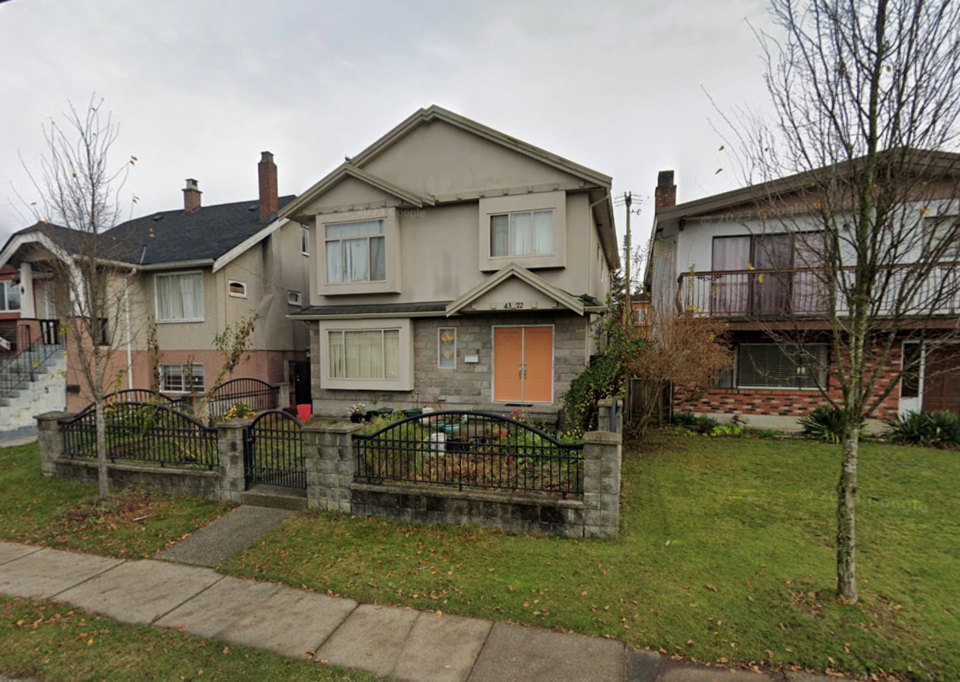The B.C. government is seeking the forfeiture of two Vancouver homes, one Abbotsford home and $1.5 million cash it says are proceeds of crime linked to an illicit cannabis grow operation where a murder took place on Sept. 10, according to a court claim.
In filing the claim, the BC Director of Civil Forfeiture is not waiting for a criminal conviction let alone formal criminal charges against Jianxin Huang, who was arrested for murder and attempted murder on Oct. 18.
According to the claim, Vancouver Police Department officers attended Huang’s property at 4372 Victoria Dr. in response to a call of gunfire.
Two individuals had been allegedly shot by Huang, according to police, and one of them succumbed to their injuries.
On the day of the shooting, officers found $1,459,235 million in cash and a cannabis grow operation in the basement. Police also located a BB cap, a baton, four spent shell casings and a tampered electrical system, the claim states.
The Victoria Drive property was Huang’s residence and owned by Xiao Zhen Jean Li, who is named in the lawsuit as a co-defendant.
Huang and Li also own 1890 41st Ave., which is subject to the forfeiture claim. And Huang owns 27658 Quinton Ave. in Abbotsford, the third home subject to forfeiture.
Police went to Huang’s Abbotsford home on the day of Huang’s arrest and found “a grow operation containing cannabis plants in excess of permits associated with the property.”
Police also located $21,600, cellphones and banking documents belonging to Li at 2118 East 37th Ave. in Vancouver.
The claim states Huang and Li are “are members of a criminal organization, as defined by the Civil Forfeiture Act.”
“Some or all the funds used to acquire and/or maintain the Real Property and the Money were proceeds of the Unlawful Activity and/or tax evasion in breach of the Income Tax Act,” the director asserts.
In order to seize the assets, a B.C. Supreme Court justice must grant an order against Huang and Li.
The BC Civil Forfeiture Act has sweeping powers allowing the director to seize assets where there is only a likely link to criminal activity and not necessarily a conviction. It places the onus of proof on the defendant.
As such, it is contentious, with the BC Civil Liberties Association opposing the act, “noting civil forfeiture grants extraordinary power to the state, undermines charter rights, and hinders access to justice.”
The director received even greater powers this year with the introduction of unexplained wealth orders as a tool.
A recommendation of the Commission of Inquiry into Money Laundering in B.C. is to fund the director’s office permanently and not have it funded with forfeited money.




